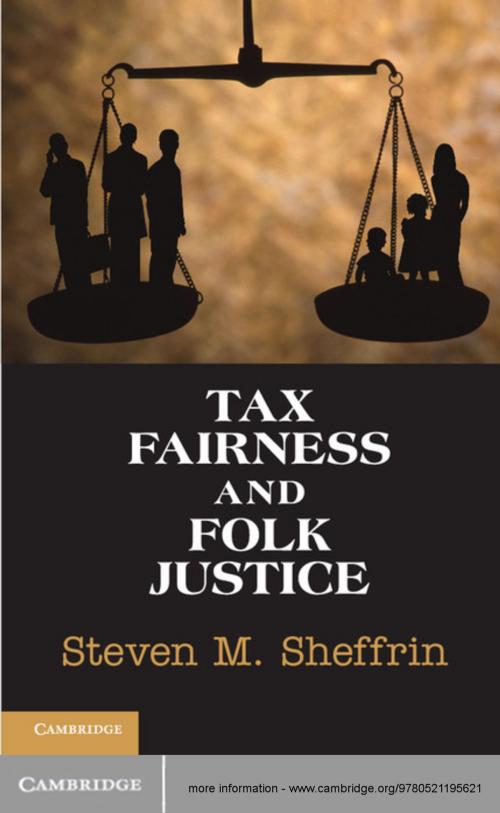Tax Fairness and Folk Justice
Nonfiction, Social & Cultural Studies, Political Science, Politics, Economic Policy, Business & Finance| Author: | Steven M. Sheffrin | ISBN: | 9781107272194 |
| Publisher: | Cambridge University Press | Publication: | September 30, 2013 |
| Imprint: | Cambridge University Press | Language: | English |
| Author: | Steven M. Sheffrin |
| ISBN: | 9781107272194 |
| Publisher: | Cambridge University Press |
| Publication: | September 30, 2013 |
| Imprint: | Cambridge University Press |
| Language: | English |
Why have Americans severely limited the estate and gift tax - ostensibly targeted at only the very wealthy - but greatly expanded the subsidies to low-wage workers through the Earned Income Tax Credit, now the single largest poverty program in the country? Why do people hate the property tax so much, yet seemingly revolt against it only during periods of economic change? Why are some groups of taxpayers more obedient to the tax authorities than others, even when they face the same enforcement regime? These puzzling questions all revolve around perceptions of tax fairness. Is the public simply inconsistent? A sympathetic and unified explanation for these attitudes is based on understanding the everyday psychology of fairness and how it comes to be applied in taxation. This book demonstrates how a serious consideration of 'folk justice' can deepen our understanding of how tax systems actually function and how they can perhaps be reformed.
Why have Americans severely limited the estate and gift tax - ostensibly targeted at only the very wealthy - but greatly expanded the subsidies to low-wage workers through the Earned Income Tax Credit, now the single largest poverty program in the country? Why do people hate the property tax so much, yet seemingly revolt against it only during periods of economic change? Why are some groups of taxpayers more obedient to the tax authorities than others, even when they face the same enforcement regime? These puzzling questions all revolve around perceptions of tax fairness. Is the public simply inconsistent? A sympathetic and unified explanation for these attitudes is based on understanding the everyday psychology of fairness and how it comes to be applied in taxation. This book demonstrates how a serious consideration of 'folk justice' can deepen our understanding of how tax systems actually function and how they can perhaps be reformed.















